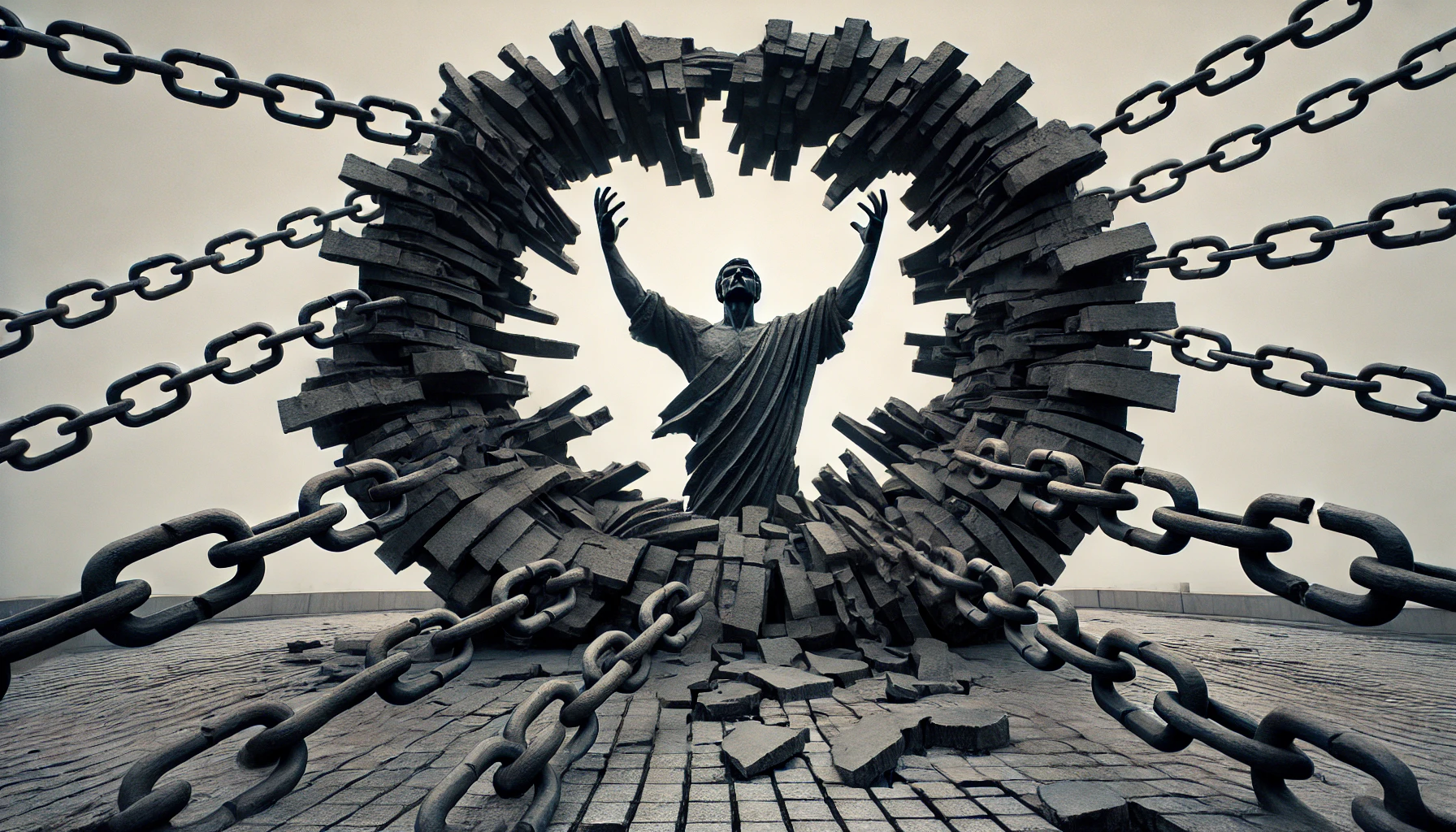
- This event has passed.
International Day for the Remembrance of the Slave Trade and its Abolition
August 23

The International Day for the Remembrance of the Slave Trade and its Abolition is a solemn observance marked every year on August 23rd. This day was established by UNESCO to memorialize the transatlantic slave trade, one of the darkest chapters in human history, and to honor the millions of Africans who were forcibly taken from their homeland and subjected to inhumane conditions. It serves as a powerful reminder of the atrocities committed and the resilience of those who fought for their freedom, culminating in the abolition of slavery in various parts of the world.
Commemorating this day is not only about looking back at the past but also about recognizing the ongoing struggles against modern forms of slavery and racial discrimination. The day calls for a reflection on the legacies of the slave trade that continue to affect societies worldwide. By acknowledging this history, the global community is encouraged to combat racism, xenophobia, and intolerance, ensuring that such atrocities are never repeated.
History and Meaning: A Legacy of Resistance
The history of the International Day for the Remembrance of the Slave Trade and its Abolition is rooted in the significant events that led to the end of the transatlantic slave trade. The date, August 23rd, was chosen to commemorate the beginning of the Haitian Revolution in 1791, a pivotal uprising by enslaved Africans in Saint-Domingue (modern-day Haiti) that played a crucial role in the abolition of the slave trade. The revolution was a powerful act of resistance against the brutal oppression faced by enslaved individuals and ultimately led to the establishment of Haiti as the first independent Black republic.
This day also symbolizes the broader abolitionist movements that took place across the globe, from the United States to the Caribbean, Latin America, and beyond. The fight against the transatlantic slave trade was long and arduous, involving the efforts of many brave individuals and groups who risked their lives to end this inhumane practice. The International Day for the Remembrance of the Slave Trade and its Abolition serves as a reminder of the enduring struggle for human rights and the importance of remembering those who fought for freedom.
Traditions and Rituals: Honoring the Memory of the Enslaved
The International Day for the Remembrance of the Slave Trade and its Abolition is observed through a variety of traditions and rituals that honor the memory of the enslaved and celebrate the resilience of their descendants. One common tradition is the holding of memorial ceremonies and events that feature readings, music, and performances dedicated to the history and legacy of the slave trade. These events often take place in historically significant locations, such as former slave ports, museums, and memorial sites.
In many communities, there is also a focus on educational activities aimed at raising awareness about the history of slavery and its lasting impacts. Schools, universities, and cultural institutions may organize lectures, exhibitions, and discussions that explore the historical, social, and economic aspects of the slave trade. These activities are designed to educate the public, especially younger generations, about this critical part of history and to promote a deeper understanding of its consequences.
Modern Celebration of the Day: A Global Call to Action
Today, the International Day for the Remembrance of the Slave Trade and its Abolition is celebrated as a global call to action against all forms of discrimination and modern slavery. Governments, non-governmental organizations, and civil society groups around the world use this day to advocate for the protection of human rights and the eradication of practices that perpetuate inequality and exploitation. Events are often held to highlight the ongoing challenges faced by marginalized communities and to promote social justice.
In the digital age, the observance of this day has also expanded to include online campaigns and virtual events. Social media platforms are utilized to spread awareness, share stories, and engage in discussions about the legacy of the slave trade and its relevance to contemporary issues. This global conversation helps to connect people across different cultures and backgrounds, fostering a sense of solidarity and shared responsibility in the fight against injustice.
10 Congratulations and Wishes
- May this day inspire us all to stand against oppression and celebrate the resilience of those who fought for freedom.
- On this solemn day, let us honor the memory of those who endured unimaginable suffering and emerged victorious.
- Wishing you a day of reflection and remembrance as we acknowledge the courage of those who resisted slavery.
- May the legacy of the abolitionists continue to inspire us to fight for justice and equality for all.
- Let this day remind us of the power of unity and the importance of standing against all forms of discrimination.
- Sending thoughts of strength and solidarity as we remember the struggles and triumphs of those who fought for freedom.
- May the history of this day serve as a reminder that the fight for human rights is ongoing and that we must remain vigilant.
- Wishing you a day of reflection, education, and action as we commemorate the abolition of the slave trade.
- Let us honor the past by committing to a future where freedom and dignity are upheld for all.
- On this day, may we all be inspired to continue the work of those who fought to end slavery and promote equality.
10 Unusual Facts
- The Haitian Revolution, which began on August 23, 1791, is the only successful slave revolt in history that led to the founding of an independent nation.
- The transatlantic slave trade is considered one of the largest forced migrations in history, with over 12 million Africans forcibly transported to the Americas.
- The British abolitionist movement played a significant role in ending the transatlantic slave trade, culminating in the passage of the Abolition of the Slave Trade Act in 1807.
- Despite the official abolition of the slave trade, illegal slave trading continued for decades, particularly in Brazil, which was the last country in the Americas to abolish slavery in 1888.
- The Zong massacre of 1781, where over 130 enslaved Africans were thrown overboard from a British ship, sparked outrage and fueled the abolitionist movement in Britain.
- The Amistad case of 1839, involving a rebellion on a Spanish slave ship, became a landmark legal battle in the United States and contributed to the abolitionist cause.
- The UNESCO Slave Route Project, launched in 1994, aims to break the silence surrounding the slave trade and promote the historical and cultural understanding of this period.
- In some countries, August 23rd is marked by reenactments of slave revolts and other forms of public commemoration.
- The legacy of the slave trade continues to impact global demographics, with significant African diasporic communities in the Americas, Europe, and the Caribbean.
- The International Day for the Remembrance of the Slave Trade and its Abolition is observed by UNESCO member states across the globe, highlighting the universal significance of this history.
10 Frequently Asked Questions (FAQs)
1. What is the significance of August 23rd?
August 23rd marks the beginning of the Haitian Revolution in 1791, a major uprising by enslaved Africans that led to the abolition of slavery and the establishment of Haiti as the first independent Black republic.
2. Why was the transatlantic slave trade so significant?
The transatlantic slave trade was significant because it involved the forced migration of millions of Africans to the Americas, profoundly shaping the social, economic, and cultural landscape of the world.
3. How is the International Day for the Remembrance of the Slave Trade and its Abolition observed?
The day is observed through memorial ceremonies, educational events, online campaigns, and public commemorations that honor the memory of the enslaved and promote awareness of the ongoing fight against modern forms of slavery.
4. What role did the Haitian Revolution play in the abolition of slavery?
The Haitian Revolution was a pivotal event that demonstrated the power of enslaved people to fight for and achieve their freedom, inspiring other abolitionist movements around the world.
5. What is the UNESCO Slave Route Project?
The UNESCO Slave Route Project, launched in 1994, seeks to break the silence around the history of the slave trade and promote cultural understanding and dialogue about its legacy.
6. Are there any modern forms of slavery?
Yes, modern forms of slavery, such as human trafficking, forced labor, and child exploitation, still exist today, making the fight for freedom and human rights as relevant as ever.
7. How does the legacy of the slave trade affect modern societies?
The legacy of the slave trade continues to affect modern societies through issues such as systemic racism, economic disparities, and the cultural identity of African diasporic communities.
8. Why is it important to remember the history of the slave trade?
Remembering the history of the slave trade is important to honor the victims, acknowledge the impact of this atrocity, and ensure that such injustices are not repeated in the future.
9. What actions can individuals take to commemorate this day?
Individuals can commemorate this day by educating themselves and others about the history of the slave trade, participating in memorial events, and supporting initiatives that promote social justice and human rights.
10. How does this day contribute to the global fight against racism?
This day contributes to the global fight against racism by raising awareness of the historical roots of racial discrimination and encouraging actions to combat prejudice and inequality in all its forms.
The International Day for the Remembrance of the Slave Trade and its Abolition is a vital observance that serves as a reminder of the horrors of the past and the ongoing struggles for justice and equality. By reflecting on this dark chapter in history, we can better understand the roots of modern social issues and work towards a future where freedom and human dignity are universally respected. The day encourages us to remember the resilience of those who fought against oppression and to draw inspiration from their courage in our own efforts to create a more just world.
Why is this day important? It is crucial because it not only honors the memory of the millions of individuals who suffered under the slave trade but also calls attention to the need for continued vigilance against the forms of exploitation and discrimination that persist today. The observance of this day is a call to action for individuals and societies to work together to build a world free from oppression, where every person is treated with respect and humanity.
Author’s Opinion: A Day of Reflection and Action
As we observe the International Day for the Remembrance of the Slave Trade and its Abolition, it is important to recognize that the impact of the slave trade is not just a historical matter but a contemporary issue that continues to shape our world. The legacy of the transatlantic slave trade is evident in the racial inequalities and social injustices that persist today. This day should serve as a catalyst for reflection on how far we have come and how much further we need to go in the fight for equality.
In my opinion, this day is not only about remembering the past but also about taking concrete steps towards a better future. It is an opportunity for individuals and communities to educate themselves, to engage in meaningful conversations about race and justice, and to take action against the systemic issues that stem from this dark history. By doing so, we can honor the memory of those who suffered and ensure that their fight for freedom was not in vain.




